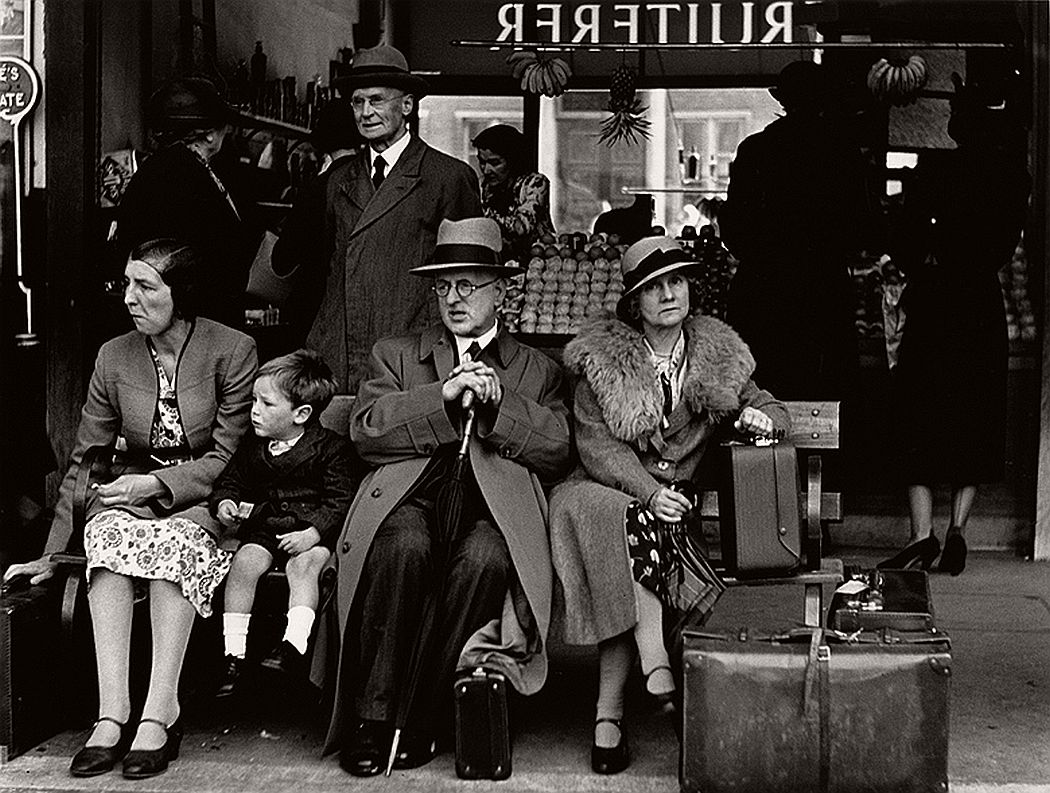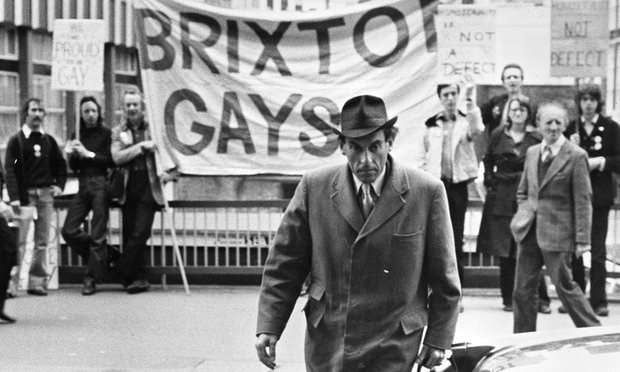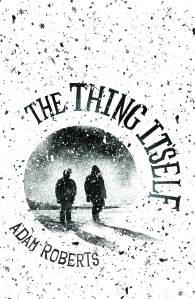This post originally appeared on my other, now defunct blog, in December 2016.
At the end of last year, my wife and I swapped roles. It was an easy decision, as I was the only one of us able to drive our sons to their new schools. My wife joined a publishing company and thrived, while I joined the world of stay-at-home fathers, and withered. However, although this has been a challenging year, I've been grateful for the opportunity to read more books than ever. I began the year by resolving to abandon my Kindle and enjoyed some serendipitous discoveries in charity shops. However, almost a year on, my teetering piles of books have reminded me why I bought a Kindle in the first place. Here are a few of the titles that made a particular impression on me:
At the end of last year, my wife and I swapped roles. It was an easy decision, as I was the only one of us able to drive our sons to their new schools. My wife joined a publishing company and thrived, while I joined the world of stay-at-home fathers, and withered. However, although this has been a challenging year, I've been grateful for the opportunity to read more books than ever. I began the year by resolving to abandon my Kindle and enjoyed some serendipitous discoveries in charity shops. However, almost a year on, my teetering piles of books have reminded me why I bought a Kindle in the first place. Here are a few of the titles that made a particular impression on me:
1. SURPRISINGLY TOPICAL READ OF THE YEAR
Philip Roth's novel 'The Plot Against America', published 12 years ago, takes place in an alternate timeline in which Roosevelt lost the 1940 Presidential election to Charles Lindbergh. At the time, a story about an experienced politician losing to a celebrity with fascist sympathies and no experience of government seemed rather far fetched. Of course, Hillary Clinton is no Roosevelt and Donald Trump is no Lindbergh, but the essential message of this book is worth heeding: democracy can become quickly debased if we allow it.
Philip Roth's novel 'The Plot Against America', published 12 years ago, takes place in an alternate timeline in which Roosevelt lost the 1940 Presidential election to Charles Lindbergh. At the time, a story about an experienced politician losing to a celebrity with fascist sympathies and no experience of government seemed rather far fetched. Of course, Hillary Clinton is no Roosevelt and Donald Trump is no Lindbergh, but the essential message of this book is worth heeding: democracy can become quickly debased if we allow it.

2. BETTER THAN EXPECTED READ OF THE YEAR
I'd always assumed that Norman Collins' novel 'London Belongs to Me' was a dreadful old potboiler, so it was a pleasant surprise to find that for all its faults, it was a compelling and vivid evocation of London on the eve of the Second World War. Set in a boarding house that has seen better days, the novel eavesdrops on the lives of its occupants with insight and humour.
I'd always assumed that Norman Collins' novel 'London Belongs to Me' was a dreadful old potboiler, so it was a pleasant surprise to find that for all its faults, it was a compelling and vivid evocation of London on the eve of the Second World War. Set in a boarding house that has seen better days, the novel eavesdrops on the lives of its occupants with insight and humour.

The perfect comfort read, 'London Belongs To Me' has been reissued as a Penguin Modern Classic, with a glowing recommendation on the cover from Sarah Walters.
3. RANDOM CHARITY SHOP DISCOVERY OF THE YEAR
The name VS Prichett meant little to me apart from his occasional appearance in short story collections, so I was intrigued to find a novel by him in the Lewes branch of Oxfam. Largely set in the Amazon jungle, 'Dead Man Leading' reads like a Conradian tale as written by Evelyn Waugh, with a finely-tuned sense of the absurd. But although it is faintly reminiscent of the last part of Waugh's own 'A Handful of Dust', Pritchett has a clear, confident voice and the result is a book that is odd and unsettling, but strangely compelling.

4. DYSTOPIAN NOVEL OF THE YEAR
'The Life & Times of Michael K' by JM Coetzee was published in 1983, winning the author his first Booker Prize. There is an awful lot of dystopian and post-apocalyptic genre fiction being published at the moment and some of it is very enjoyable, but Coetzee's brilliantly stark vision has yet to be matched.
5. BEST NEW THRILLER
I enjoy a good thriller and with a Kindle I can read any old trash without anyone knowing, but I've no patience with books that suffer from lumpen prose, implausible characters and cliche-ridden dialogue, no matter how good the plot is. Fortunately, Sabine Durrant's 'Lie With Me' is a cut above the average thriller and a worthy successor to Patricia Highsmith, intelligently written and well plotted.
I thought it was much better than the overrated 'The Girl on the Train'. Durrant does a very convincing job of narrating the story from the perspective of a man in his early 40s and her depiction of an affluent South London family rings horribly true. I also enjoyed her evocative descriptions of a Greek island, written in a clear prose style that avoids the overwritten cliches of many genre novels.
6. NON FICTION BOOK OF THE YEAR
The subject of John Preston's 'A Very English Scandal' will mean little to anyone under the age of 45 and absolutely nothing to anyone outside the UK, but it is a story that will appeal to many. Jeremy Thorpe was the charismatic leader of Britain's Liberal Party, with a lust for power that was only exceeded by his penchant for young men. When the latter threatened the former, in the guise of a troubled individual called Norman Scott, Thorpe asked a friend to have him killed.
Beyond some smutty 1970s playground jokes ("What do Jeremy Thorpe and Captain Kirk have in common?), my only memory of Thorpe was a sympathetic one - a good man defeated by the bigotry of a different age. How wrong I was. The Thorpe that emerges in these pages is a charming psychopath, callously exploiting the extraordinary loyalty of his friends and family to further his political career.

'A Very English Scandal' reads like a thriller and is utterly gripping from start to finish.
7. OBSCURE CLASSIC OF THE YEAR
'The Serious Game' is an extraordinary 1912 novel by Hjalmar Söderberg, who in his native Sweden is regarded as the equal of Strindberg. On the face of it it's a simple enough tale of a young couple who fall in love, but end up being unhappily married to other people. What's remarkable about the book is its modernity and insight, containing a candour that no English novelist would have dared to attempt in Edwardian Britain.
8. FORGOTTEN MASTERPIECE OF THE YEAR
'The Deadly Percheron' by John Franklin Bardin is one of those rare novels that transcends its genre. What begins as a rather eccentric mystery novel set in New York quickly changes gear, taking the reader on a strange journey into the darker recesses of the human pyche, where nothing is what it seems. Written in 1946, this novel has been largely forgotten since it was republished by Penguin during the 1960s, but has enjoyed a cult following.
9. MOST HARROWING READ OF THE YEAR

'Chernobyl Prayer' by Svetlana Alexievich is a brilliant piece of reportage, collecting eye-witness accounts of people affected by the Chernobyl disaster in 1986. One of the most shocking stories relates how some robotic devices - sent in to move irradiated graphite rods - kept breaking down after a bried period of exposure to radiation. In the end, men were dispatctched to pick the rods up by hand, wearing only the flimsiest of protective suits.
Told that they couldn't have more than 40 seconds' exposure to the graphite, the men soon discovered that it was impossible to do anything in under two minutes and went ahead regardless. For me, the most harrowing part of the book was reading a wife's account of how she nursed her husband during a long, debilitating and painful illness, following his exposure to a massive dose of radiation. When he finally died, his body treated as radioactive waste, buried in a lead-lined coffin.

But if this all sounds too upsetting, I should also add that 'Chernobyl Prayer' also contains some remarkable stories of heroism, compassion and survival. It is a gripping read that reveals the best and worst of humanity.
10. SILLIEST BOOK OF THE YEAR
I really enjoyed Dorothy Hughes's 1940s noir thriller 'In a Lonely Place' and was keen to explore her backlist. Sadly, 'The So Blue Marble' is one of the most ridiculous books I've ever read, with an implausible plot and a selection of unbelievable characters. Thinking that Hughes must have had an off day, I tried another novel by her and was equally nonplussed.
11. LIGHTEST HEAVY BOOK OF THE YEAR
Adam Roberts' 'The Thing Itself' is a high concept novel that bandies ideas about Kantian philosophy, quantum physics and artificial intelliegence around with the ease of someone talking about the weather. A description of the plot would be no help at all. All I can say is that it's a playful, witty, knockabout tale that wears its cleverness lightly and is consistently funny.

12. BEST NOVEL BY A BALD, SOUTH AFRICAN EMIGRE
I'm a big fan of Justin Cartwright and really enjoyed reading his 2002 novel 'White Lightning'. With a narrative that alternates between South Africa and England, this is a poignant tale of grief and loneliness that is redeemed by the author's wit and humanity. I was particularly amused by Cartwright's description of a 'saucy film' shoot, only to later discover that in the 1970s, he wrote the screenplay for 'Rosie Dixon - Night Nurse'.
These were the books that made a big impression on me, but I should mention that I also really enjoyed Kate Summerscale's 'The Suspicions of Mr Whicher', Trollope's 'Doctor Throne', Jonathan Franzen's new novel 'Purity', Andrew Hurley's superb 'The Loney', Lionel Shriver's latest book 'The Mandibles' and Derek Raymond's grim but brilliant 'Factory' novels. I also read three books by Dutch people.
Next year I intend to not read any DH Lawrence or Commonwealth novels with lengthy descriptions of marketplaces, fruit and wise old men, but other than that, I am open to almost anything.

4 comments:
Still reading far too many medical books, and I won't inflict them on you. But in case I haven't before, one of my favourite dead authors: Maurice Walsh (pick any book). Esoterica for when my brain functions: Oldfield Howey's The Cult of the Dog. Latest pickup from the markets: The Manual of Heraldry (something you'd naturally expect to find in any Australian town!). Guilty online pleasure: Harry Potter fanfics.
Reading pile - still growing.
So glad you are back. I kept checking this blog site for updates...just in case. What a surprise to see it spring back to life.
I generally keep negative opinions to myself, but The Girl on the Train is one of the worst novels I have ever read. Absolutely dire. I don't own a kindle but probably should - the other night we were woken up by a loud crash, as a five-foot-long bookshelf fell off the wall in my work room. Now the books are in piles waiting for me to do something about it.
Yes, it was awful. Totally implausible and very silly. Worst of all, every other thriller now seems to have word girl in the title.
Post a Comment